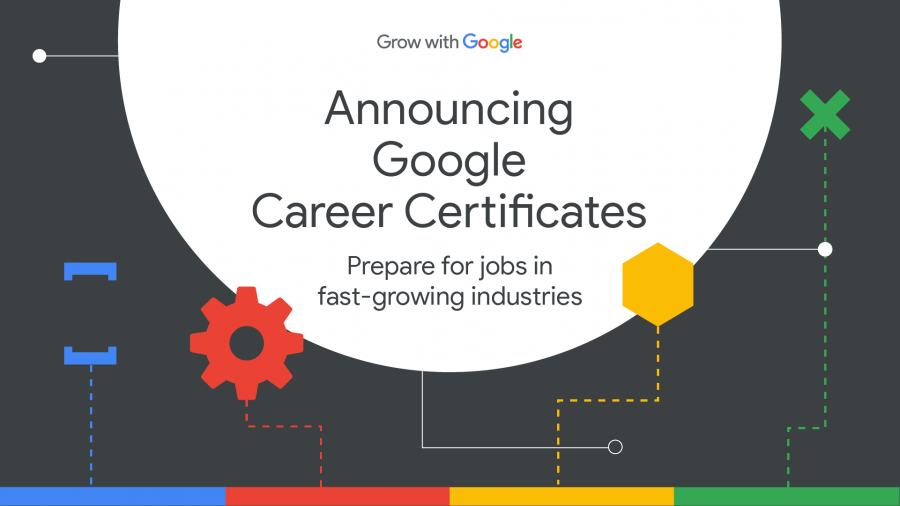Google Introduces 6-Month Career Certificates, Threatening to Disrupt Higher Education with “the Equivalent of a Four-Year Degree”

I used to make a point of asking every college-applying teenager I encountered why they wanted to go to college in the first place. Few had a ready answer; most, after a deer-in-the-headlights moment, said they wanted to be able to get a job — and in a tone implying it was too obvious to require articulation. But if one's goal is simply employment, doesn't it seem a bit excessive to move across the state, country, or world, spend four years taking tests and writing papers on a grab-bag of subjects, and spend (or borrow) a large and ever-inflating amount of money to do so? This, in any case, is one idea behind Google's Career Certificates, all of which can be completed from home in about six months.
Any such remote educational process looks more viable than ever at the moment due to the ongoing coronavirus pandemic, a condition that also has today's college-applying teenagers wondering whether they'll ever see a campus at all. Nor is the broader economic harm lost on Google, whose Senior Vice President for Global Affairs Kent Walker frames their Career Certificates as part of a "digital jobs program to help America's economic recovery." He writes that "people need good jobs, and the broader economy needs their energy and skills to support our future growth." At the same time, "college degrees are out of reach for many Americans, and you shouldn’t need a college diploma to have economic security."
Hence Google's new Career Certificates in "the high-paying, high-growth career fields of Data Analytics, Project Management, and User Experience (UX) Design," which join their existing IT Support and IT Automation in Python Certificates. Hosted on the online education platform Coursera, these programs (which run about $300-$400) are developed in-house and taught by Google employees and require no previous experience. To help cover their cost Google will also fund 100,000 "need-based scholarships" and offer students "hundreds of apprenticeship opportunities" at the company "to provide real on-the-job training." None of this guarantees any given student a job at Google, of course, but as Walker emphasizes, "we will consider our new career certificates as the equivalent of a four-year degree."
Technology-and-education pundit Scott Galloway calls that bachelor's-degree equivalence the biggest story in his field of recent weeks. It's perhaps the beginning of a trend where tech companies disrupt higher education, creating affordable and scalable educational programs that will train the workforce for 21st century jobs. This could conceivably mean that universities lose their monopoly on the training and vetting of students, or at least find that they'll increasingly share that responsibility with big tech.
This past spring Galloway gave an interview to New York magazine predicting that "ultimately, universities are going to partner with companies to help them expand." He adds: "I think that partnership will look something like MIT and Google partnering. Microsoft and Berkeley. Big-tech companies are about to enter education and health care in a big way, not because they want to but because they have to." Whether such university partnerships will emerge as falling enrollments put the strain on certain segments of the university system remains to be seen, but so far Google seems confident about going it alone. And where Google goes, as we've all seen before, other institutions often follow.
Related Content:
Free Online Computer Science Courses
Free Online Engineering Courses
Based in Seoul, Colin Marshall writes and broadcasts on cities, language, and culture. His projects include the book The Stateless City: a Walk through 21st-Century Los Angeles and the video series The City in Cinema. Follow him on Twitter at @colinmarshall, on Facebook, or on Instagram.
Google Introduces 6-Month Career Certificates, Threatening to Disrupt Higher Education with “the Equivalent of a Four-Year Degree” is a post from: Open Culture. Follow us on Facebook, Twitter, and Google Plus, or get our Daily Email. And don't miss our big collections of Free Online Courses, Free Online Movies, Free eBooks, Free Audio Books, Free Foreign Language Lessons, and MOOCs.
from Open Culture https://ift.tt/34YXbIy
via Ilumina
Comments
Post a Comment